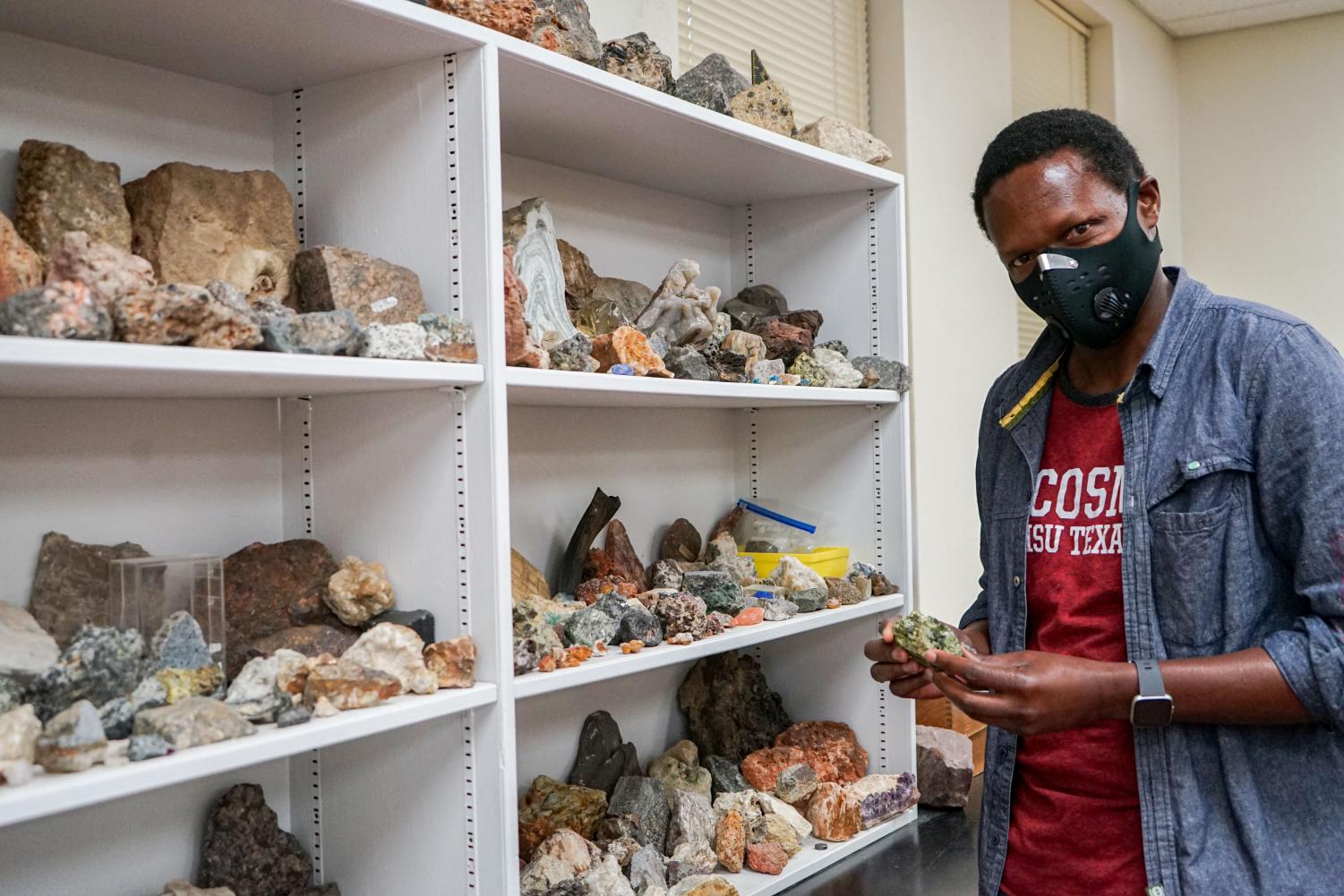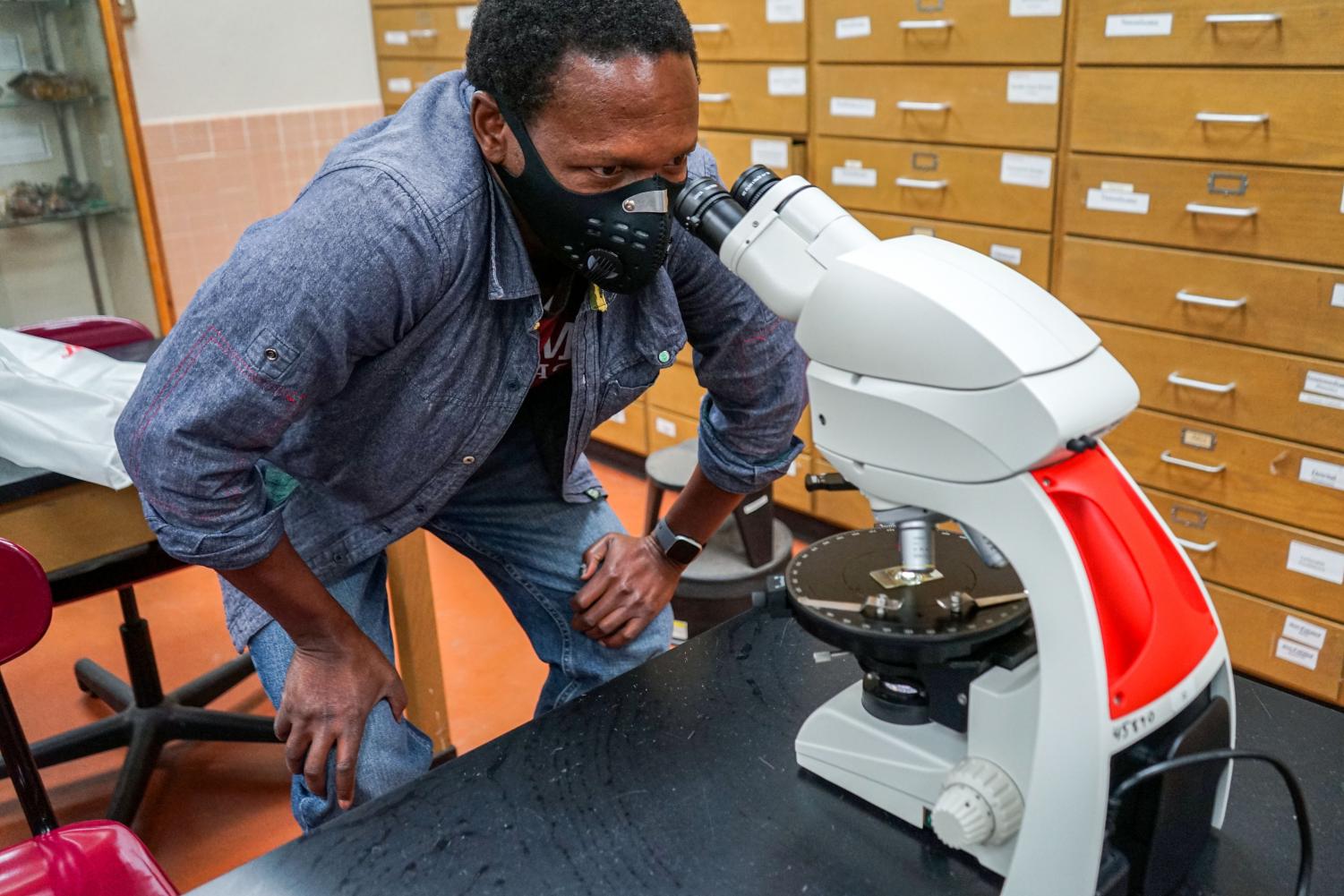Geology professor receives grant to conduct research collaboration with Uganda
October 1, 2020
Growing up in Uganda, he watched his father’s face fill with excitement as he told the stories of a mine in a coalfield. Strapped for money, his father was dedicated to making a better life for himself and he did just that. Discovering one gold nugget changed his life, his family’s life, and molded Andrew Katumwehe, assistant professor of geoscience, into the man he is today. Years later, Katumwehe is following in the footsteps of his father as he returns back to his home country after 14 years to conduct a four-year study on dry rifting in the Albertine-Rhino Graben, with the help of a $184,066 grant from the National Science Foundation.
“It’s always about what you do for society, rather than what you have,” Katumwehe said. “I want to make sure my legacy is all about how much I have contributed to research. By taking this research proposal and this grant, it’s humbling, because it’s my contribution to the country [Uganda], my contribution to research, and my contribution to the U.S.”
Katumwehe has been passionate about dry-rifting in Uganda since before obtaining his doctorate degree at Oklahoma State University. He vividly remembers attending tectonic meetings with graduate students and professors where they discussed how continents are formed, how they move, and how they’ve assembled. These discussions inspired him to look past the surface level and discover the impossible.
“I was always interested in the area where I was born, because it’s unique, and it’s different from how we understand how continents break,” Katumwehe said. “It’s my main thing; it’s my baby, and people always asked why do I like this place, but [Uganda] has recently formed about 3.7 billion barrels of oil in an area that is least expected to have oil. We all wanted to know what is so special about this kind of setting, and when people started listening they understood my concerns. They bought into it, and that’s why you see they have put in that kind of money to understand it.”

After submitting his first research proposal in March 2019, Katumwehe said he never thought he would be granted $184,066 toward research he is so passionate about, especially since it’s only his second year at MSU.
“It’s quite humbling. I didn’t even understand that these kinds of research aren’t that easy to get,” Katumwehe said. “It’s very competitive. It’s prestigious. It’s an honor to be given a grant within your first two years of academia.”
This research will focus on collaboration as Katumwehe will be working with six different universities as well as students from Uganda. He acknowledges that it will be a learning experience for everyone involved.
“I’m going to take these students from the U.S. to Africa so that they start understanding how different it can be,” Katumwehe said. “I want to see their reaction once they reach Africa and how they start looking at things they usually take for granted. They also get to conduct in research that they usually read in books, they can see it physically, they can relate to it and that’s going to be a monumental experience for them.”
Through collaboration, Katumwehe believes this research will generate more understanding of the unique land of Uganda.
“We will come up with models, and those models will be used in areas that have undergone magma pour,” Katumwehe said. “They will be used to understand how all those rifts have been formed, and they will also be constructive in terms of understanding how rifting takes place without the presence of magma.”
Katumwehe hopes this research will positively impact the community.
“The models we come up with will shape how they continue their exploration,” Katumwehe said. “By understanding which areas have the tendency for movement, it will be able to help the community in coming up with designs for architecture.”
Despite his high hopes for this research, Katumwehe fears that this pandemic will put a halt to their plans. The research team plans to officially start the project by December, but in times like these nothing is set in stone.

